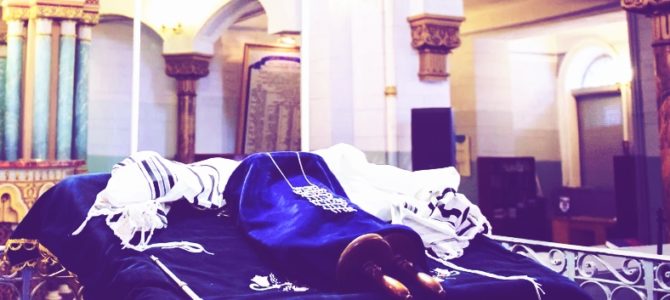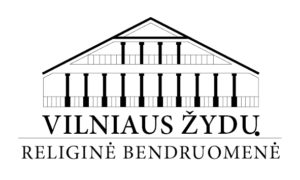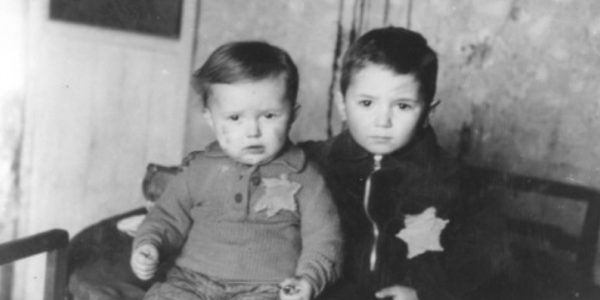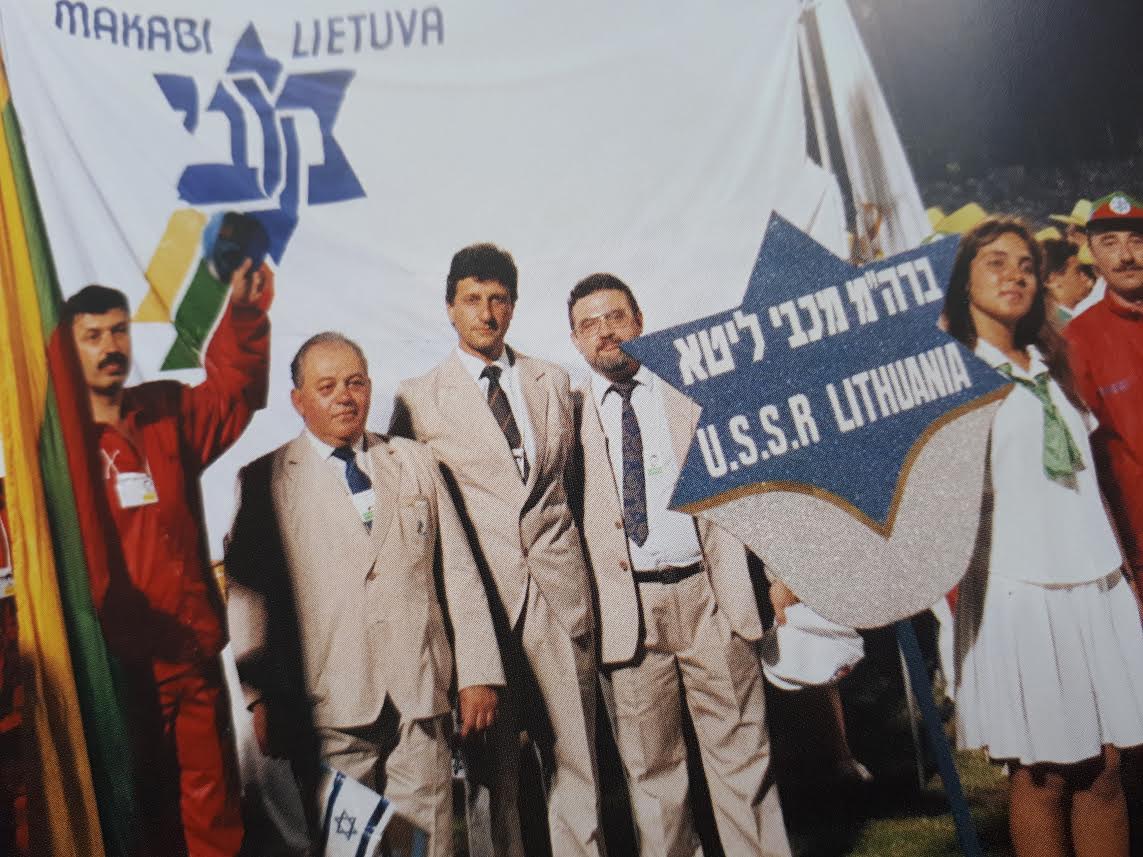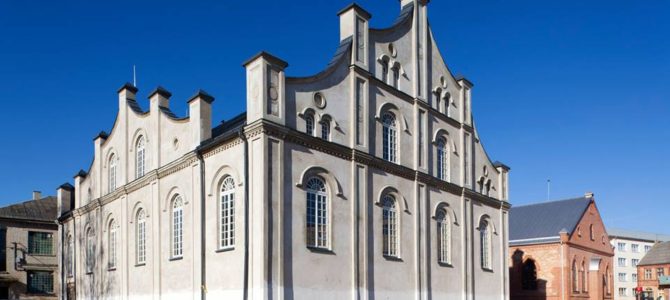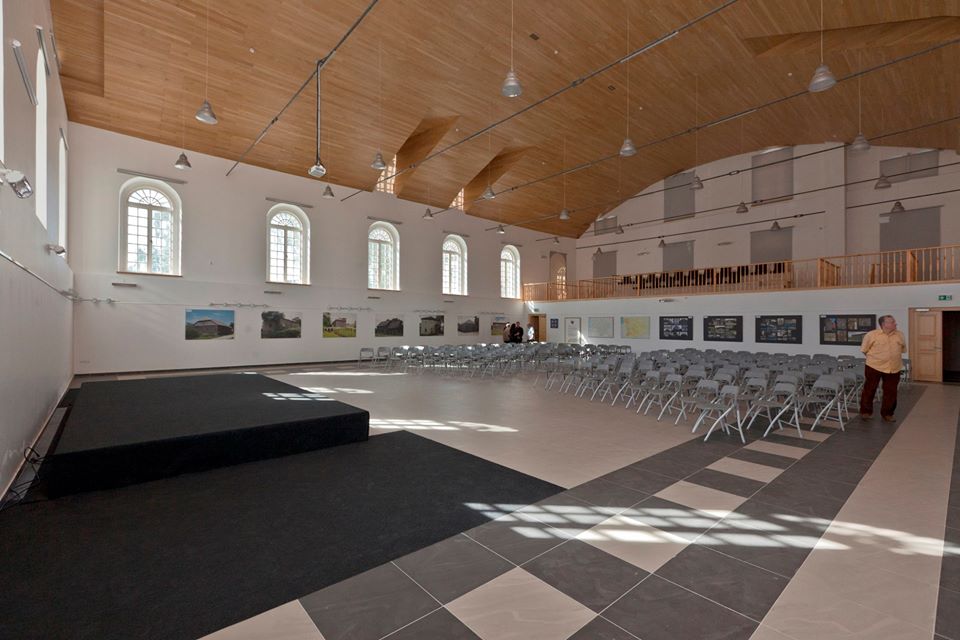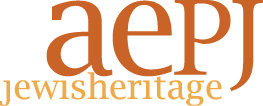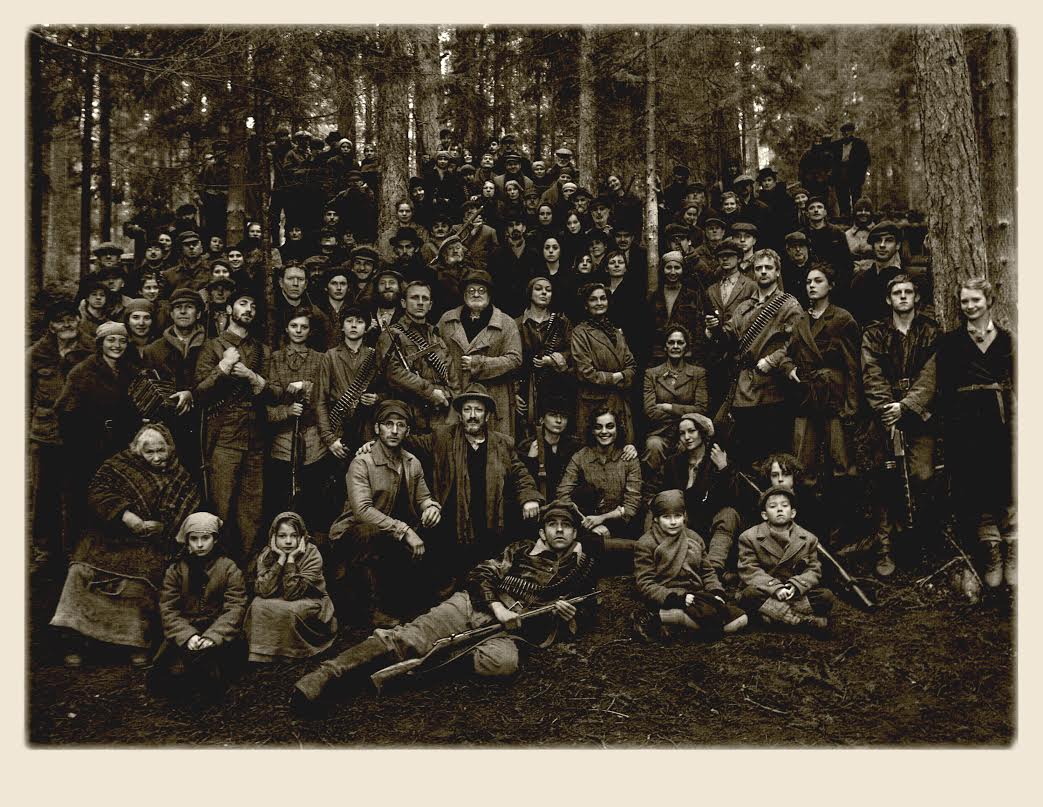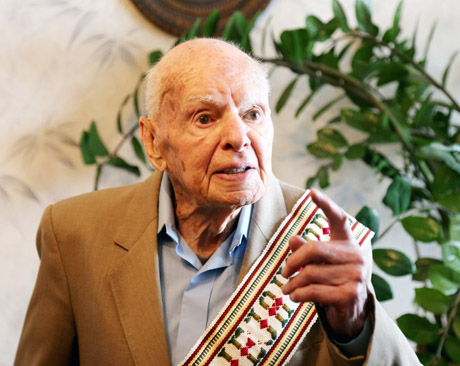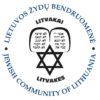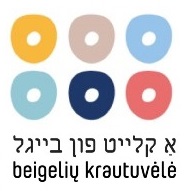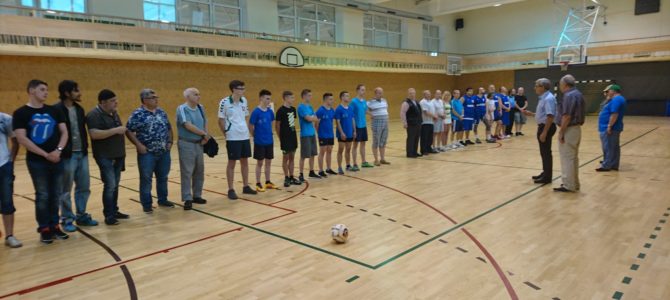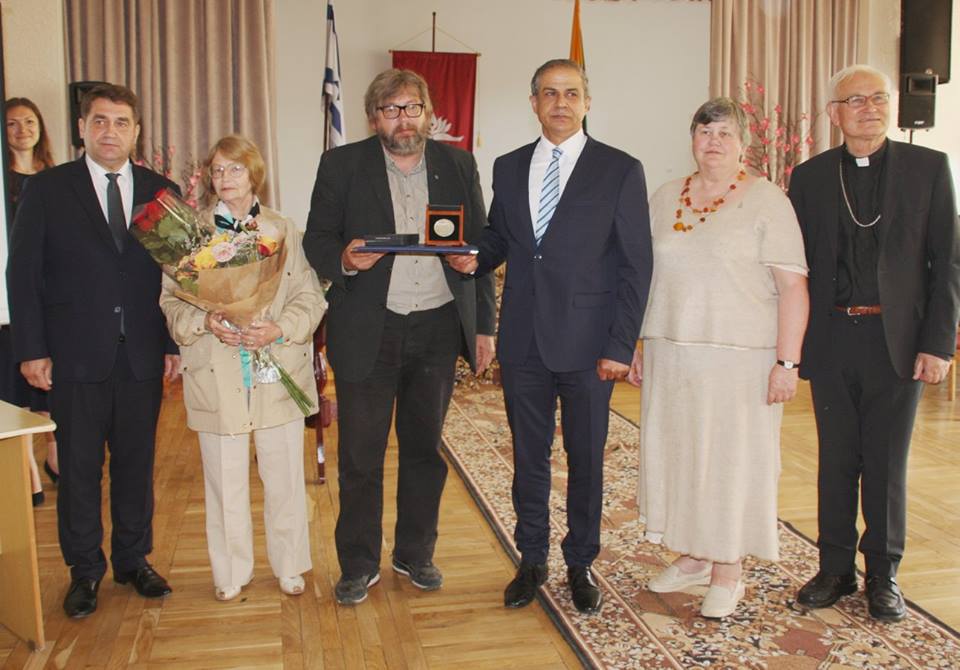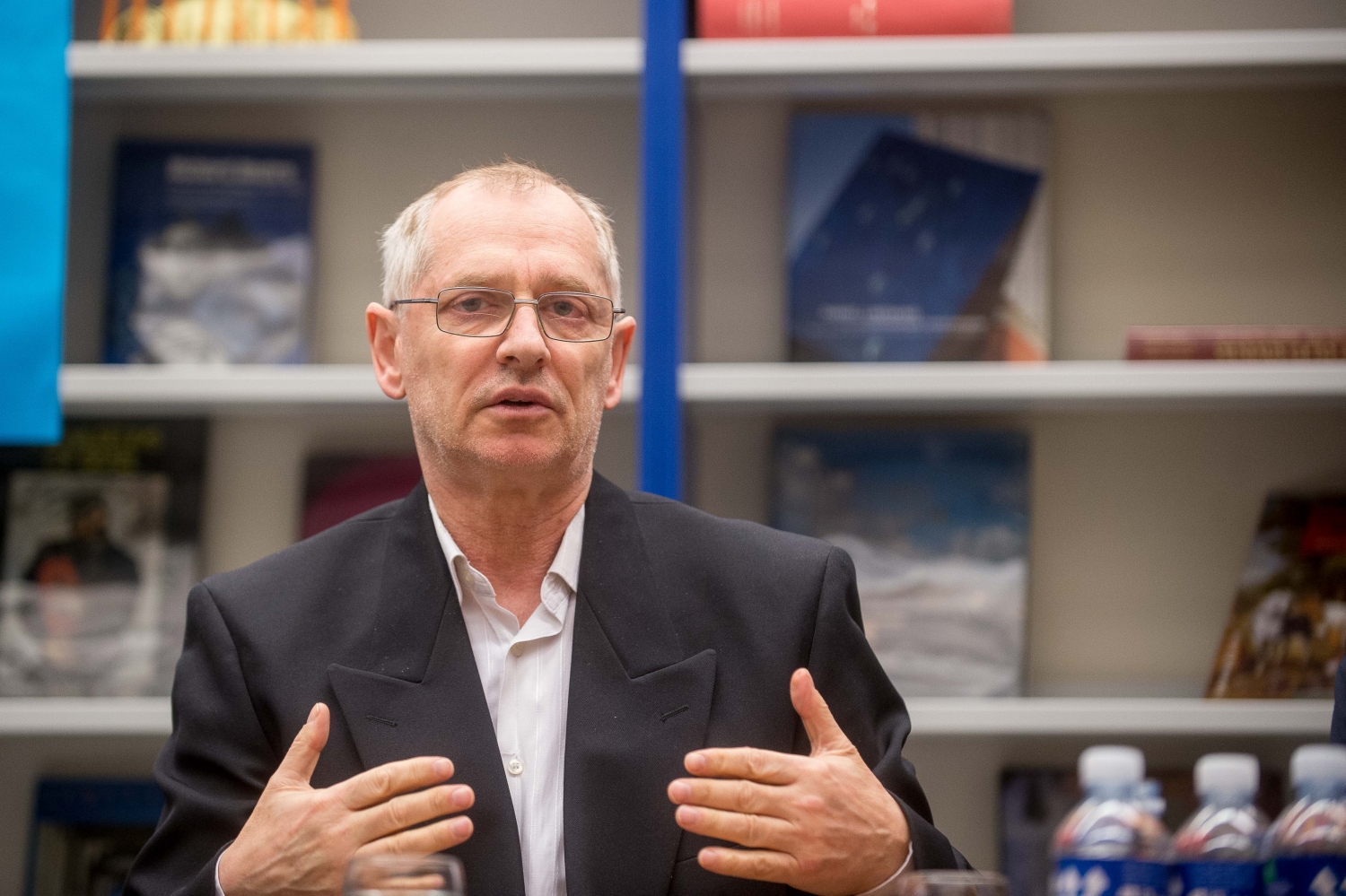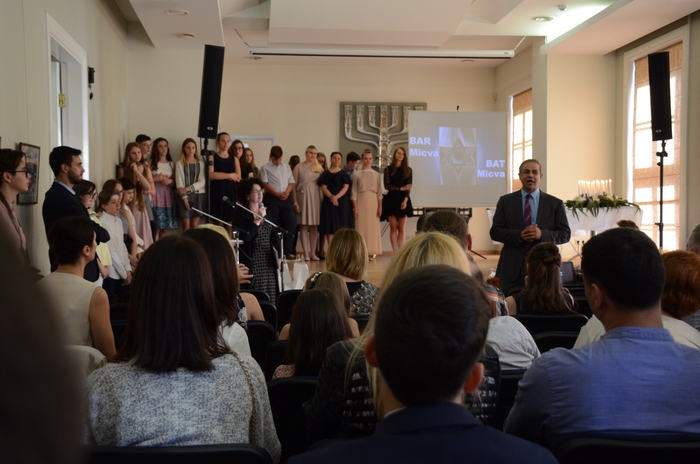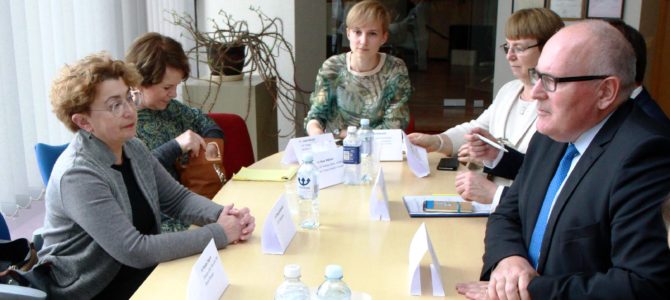
“There is no Europe without Jews,” Frans Timmermans, first vice-president of the European Commission, said during a meeting with Lithuanian Jewish leaders.
The first vice-president of the European Commission visited the Tolerance Center of the Vilna Gaon State Jewish Museum July 3 and met with museum director Markas Zingeris, Lithuanian Jewish Community chairwoman Faina Kukliansky and others there. Arnoldas Pranckevičius, European Commission representative in Lithuania, was also present. Timmermans asked about anti-Semitism in Lithuania. Chairwoman Kukliansky explained Lithuanian Jews, having lived in Lithuania for 700 years, don’t consider themselves an ethnic minority, see themselves as citizens of the country in common with ethnic Lithuanians and aren’t seeking any legal protection as a minority. She also expressed apprehension over solutions to Lithuanian Jewish problems offered by the Government, because governments change and the new Government won’t necessarily support the policies of the former one, leading to a lack of continuity in decision-making regarding matters of importance to Lithuanian Jews.
Based on his long political experience, Timmermans said the only antidote to anti-Semitism is learning Jewish history.
“There is no Europe without Jews,” he said, and stressed the importance of education which provides the opportunity to learn more about and understand Jewish history. Living history, or people who remember the actual events and the Holocaust, are dying, and historians now provide the facts and their interpretation, he noted. He said nostalgia is a kind of new opium. People operate on what they heard as children from adults, and knowing it to be wrong, nonetheless are prone to doubt new facts, Timmermans said. He also said he believed good history curricula are a must.


